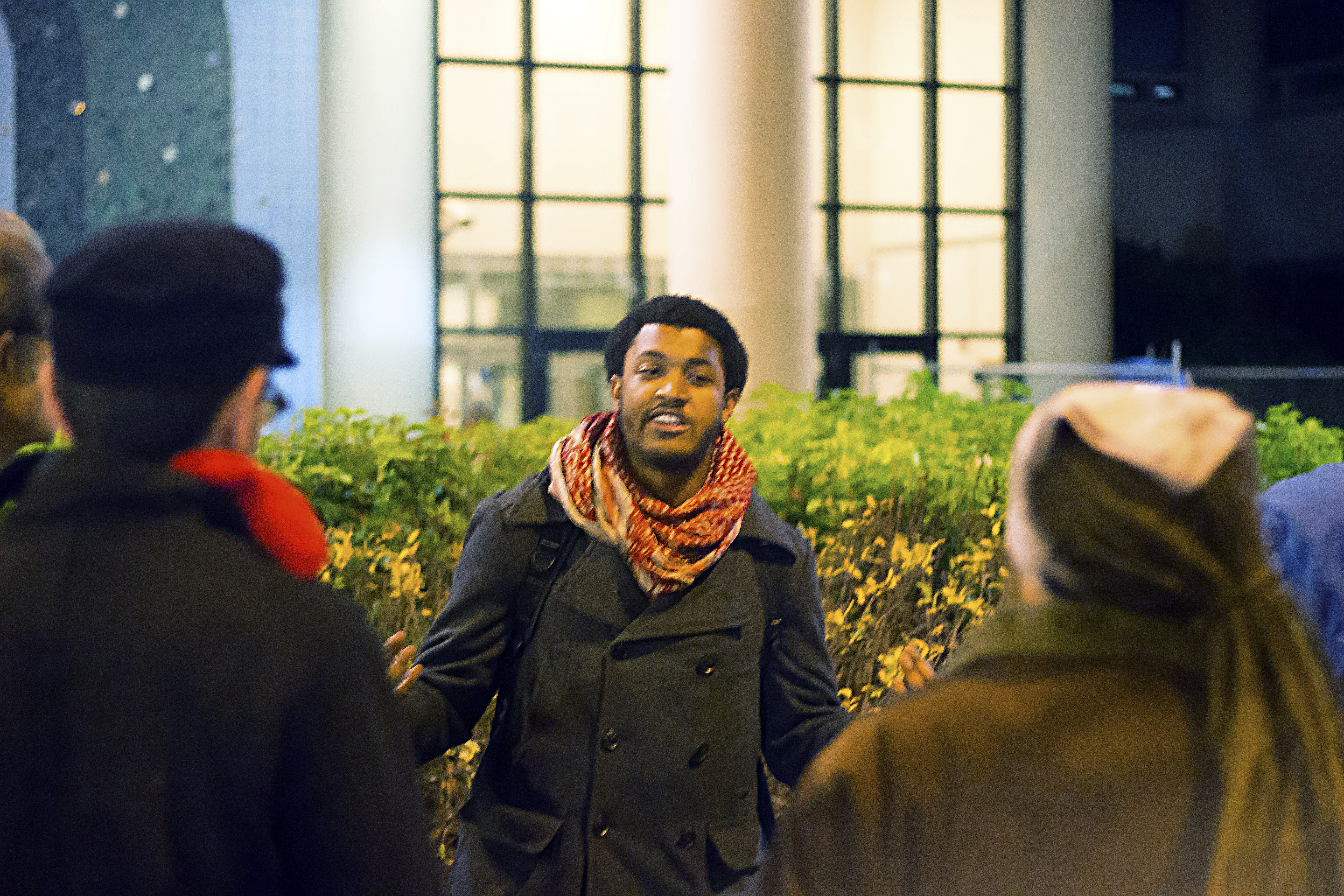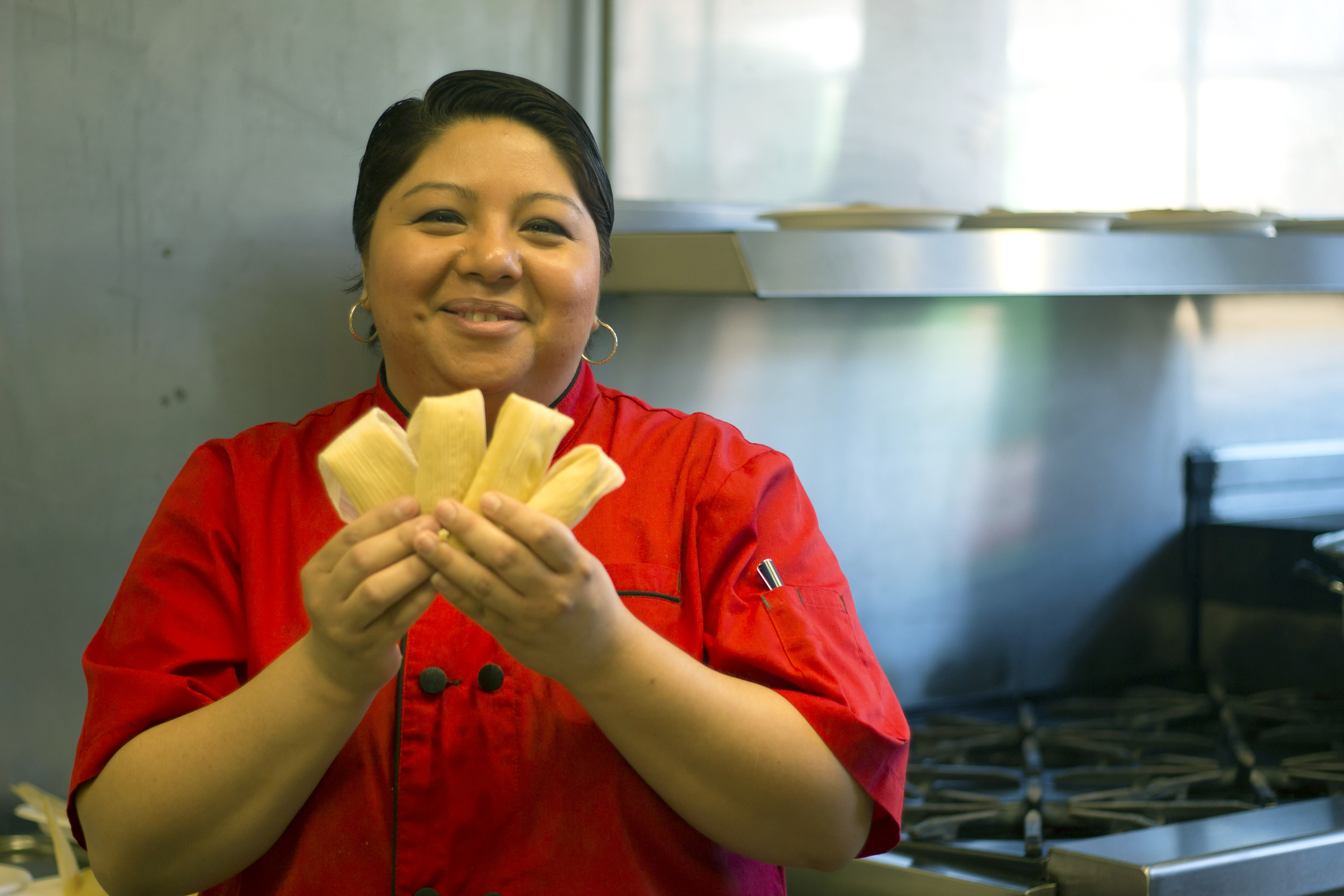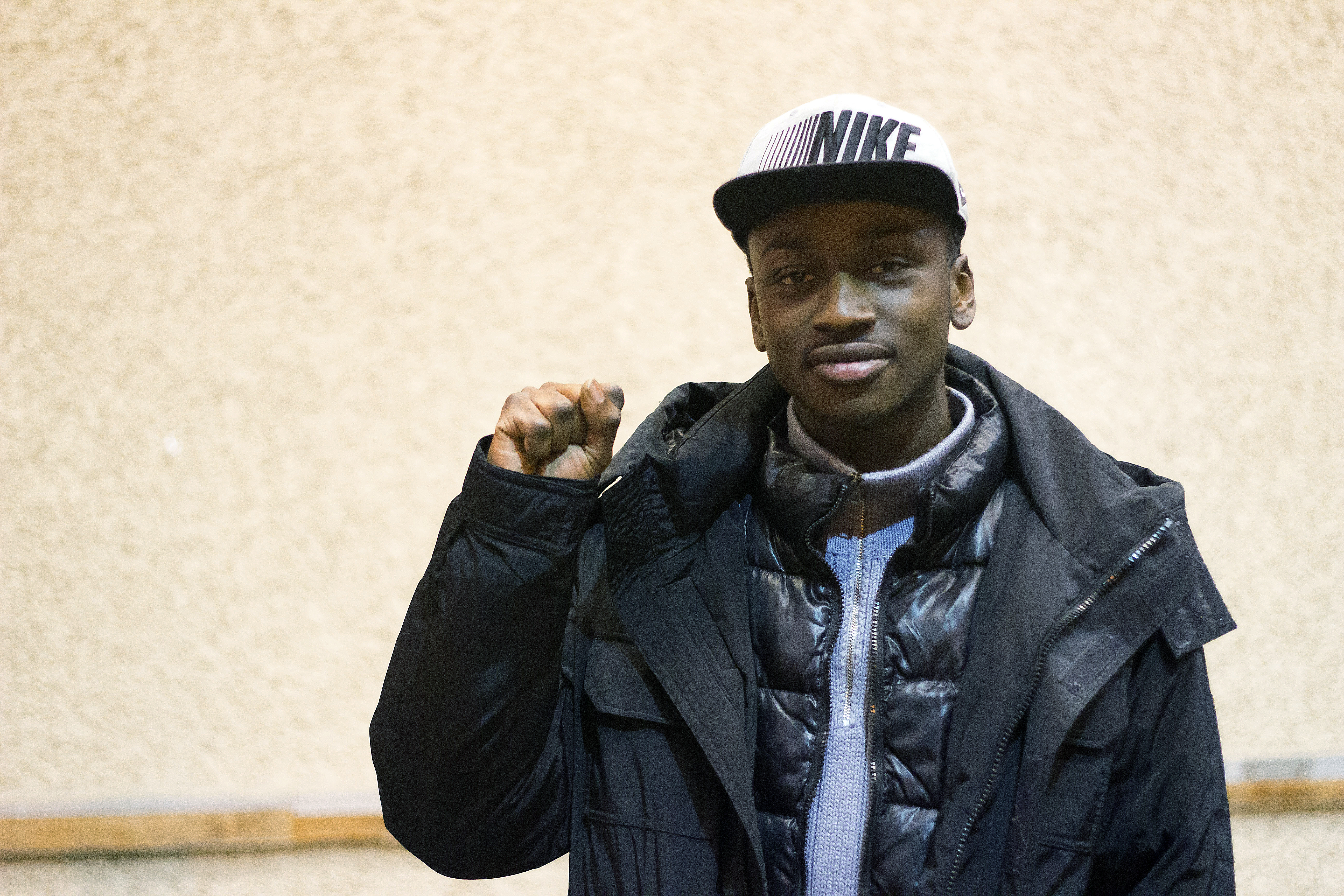Standing at the base of the King County jail on a recent evening, a protest leader shouted above the drone of a nearby construction crew: “Let’s let our brothers know we’re out here for them!” Shouts of “No justice! No peace! No racist police!” and other chants rang out. High above, the lone shadow of a prisoner could be seen waving from a window inside one of the holding cells. It was a powerful moment for the few protesters who had braved the cold that night. I had to give credit to the man leading the chants. After all, he hadn’t intended to lead anything.
With a master’s in human rights and political science from Manchester University, Cliff is more than just a supporter, he’s a student of civil rights who’s taken part in protests all over the country—mainly in New York and in Seattle, where he’s lived for the past year. Given his experience, I had to find out what he thought of the state of our city’s protests, which seemed to be waning.
How do you know if a protest has been effective? When I measure the success of protests, I don’t just look at numbers. I look at whether the message was clear, whether we engaged our target audience, whether we had a clear direction, clear action. If those things exist, then it’s a successful protest. Small protests can be effective. Large protests can be ineffective. It just depends on how they are executed.
If
successful protests are those with a clear direction, how do you ensure that people work together? Successful protesting requires that people work with cooperation, and that happens with communication. If I can talk to someone who supports us and have a conversation about what we’re trying to do, they’re open to cooperate.
Sometimes it seems as if people don’t want to cooperate, but they want to agitate the situation, shouting things like ‘All cops are bastards!” Are chants like that harmful? [It] can be distracting, but I don’t think it’s harmful. It still sends a message, even if it’s one that makes some people uncomfortable. I actually think the chant “All lives matter!” is more destructive. To say that “All lives matter” is to give in to the homogenizing effect of our white-supremacist society, to ignore the specific suffering and specific grievances of the communities that have been leading these protests and the people who are most affected.
Protests have happened for over a month now, but the last few I’ve been at have had a poor turnout. Are they losing support? No. The protests will continue. But people’s political passion is a finite resource. They can get fatigued if there are protests scheduled without purpose, because the results of those protests aren’t clear. Turning their political passion into political will means thinking about and directly speaking about how this problem can actually be solved. Well-organized protests don’t fatigue people, they capitalize on opportunities to make a statement. There will be more protests that will be well-attended, even if I’m not sure when exactly they’ll happen.
news@seattleweekly.com
Profiles in Protest is an ongoing series spotlighting local activists involved in the Black Lives Matter protests. Read more interviews with The Maoist, The Vacuum Cleaner Salesman, The Donut Lady, The Guy Fawkes Guy, Queen Pearl, and The Happy Warrior.








